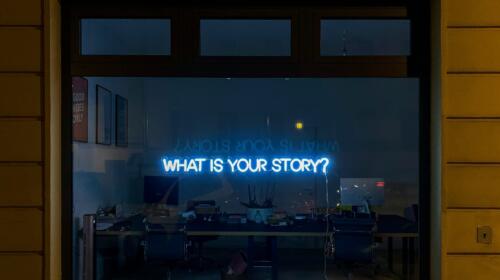Key takeaways:
- Trust is essential for brand success; fake campaigns risk eroding this trust.
- Faux outdoor ads (FOOHs) can create buzz but may disappoint the customer base when revealed as fiction.
- Transparency & using real people in marketing stunts could maintain trust while still engaging audiences.
- A digital marketer’s job is balancing entertainment and authenticity is crucial in modern brand storytelling.
Building Trust in Marketing
Trust is one of if not the key currencies of brands. Consumers don’t buy from brands they don’t trust. Consumers won’t work for or with brands they don’t trust. You will make most decisions in your life based on trust – in people, companies, or institutions. In a world increasingly full of ‘fakes’ – what is the potential impact on brands when they intentionally run fake campaigns? Is it worth the awareness you may create?
These days I came across another advertising stunt that involved a fake campaign. Skincare brand The Ordinary put a huge bottle on a float on the river Thames in London – only to communicate later that it all was a CGI-based campaign which was rolled out across Europe. So – did it really happen? And – does it matter?
I’m not talking about fake ads (that have actually not been created by the companies being advertised), but ads showing visual stunts that have not happened in reality. These are called FOOH’s it seems (I have to admit I had not heard that expression before) – Faux OOH’s.
Trust vs awareness – mutually exclusive or engaging?
Are fake ads a problem for brands – or is the awareness and the buzz they are creating worth the potential disappointment on the consumer side?
There are some eye-catching examples that we all may have come across in the recent past: from Maybelline’s Mascara ad in the London Underground to the giant Barbie in Dubai – the border between reality and fiction is quickly disappearing. Nothing is at it seems anymore.
As we wrote earlier on this blog, “a major brand awareness campaign can and will (in many cases) increase sales for a business. It is likely it won’t transform a business overnight but can have a positive impact longer term on your bottom line.” While I agree that FOOH’s may certainly have a positive short-term effect on sales and awareness, I wonder what it does for consumers when they basically fall victim to marketing stunts. When you may feel stupid for sharing something that has not really happened.
I think one key problem is that people will not immediately know it was fiction. They will share a campaign because they love it – and most often because they trusted that it has actually happened. In that case – as always in the world of social media – they will want to be amongst the first to share it. And ultimately be told it was a hoax or a fake – and they had not known. If they knew it was fiction, that it was a great creative campaign with creatively and digitally gifted people behind it – it may be different. Or will it?
Will being transparent about your digital marketing stunts help – or kill them?
Transparency may therefore be a viable option for brands who want to stand out – but at the same time keep their potential customers’ and target audience’s trust. There seems to be general consensus that while FOOH’s are definitely creating attention and ‘the power to amaze’, but that they also have the power to hurt brands. Namely the power to erode brand trust.
Research shows that FOOH’s are generating a 20% higher recall rate compared to traditional outdoor stuff. As Shruti Gupta writes in this article (and I agree with her), Edelman’s Trust Barometer “constantly reveals that consumers trust businesses more when they perceive them as authentic and transparent.”
Again, transparency seems to be a solution to run successful FOOH campaigns. But will that not take the surprise and awesomeness of many campaigns? Would we be as amazed by the mascara brush in the London Underground if we had immediately known for sure this was just a CGI play?
@maybelline 📣 All aboard the Sky High Mascara Express ✨🚄 After hitting the NYC Streets, we’re taking over London💂🇬🇧 We are on the move with #SkyHighMascara elevating your lash game to new heights🌤️ 🌇 it’s guaranteed to serve limitless lash length 📏 and full volume😍 #Maybelline ♬ original sound – Maybelline New York
Entertainment beats facts – and what this means to brand trust
Times are changing – or at least moving very fast. Fake news is dominating our news cycles. Opinions matter more than facts. Entertainment definitely matters more (to many) than facts. Entertainment may become part of your brand – and it should. Even brands with a strong focus on building brand trust, will (increasingly) need to entertain their target audience to stand out in a world full of multi-channel noise.
Going back to where I started – making sure that people don’t lose trust or even build trust in your company’s brand – this means, brands should explore new creative ways to create awareness and entertain their audiences – but try to merge that approach with some key, trust-building factors – like transparency, reliability and humanity. So, when a FOOH is demonstrating a brand’s empathy and kindness – people may forgive being misled. When a brand explains the motives behind the fake approach, people may even value a brand more than they did in the past.
Branding and brand story-telling stands at the core of any company’s communications and digital marketing efforts. With an increasingly digital and virtual world (did I hear Apple Vision?), brands are challenged to play with new formats of entertainment and thinking beyond facts and reality. I’m waiting for the first brand known for merging these two worlds in the most effective and entertaining way. It’s certainly a challenge for established big names to take that strategic switch – but it may pay huge dividends in the future. Even dividends in their true sense.
For more insight into authentically connecting with your audience, reach out to our team today.



